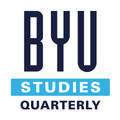Torah as Maternal Return: Chiastic Copulation and the Reconception of Sacred History, Or, Un(k)notting the Love in the Law
| Title | Torah as Maternal Return: Chiastic Copulation and the Reconception of Sacred History, Or, Un(k)notting the Love in the Law |
| Publication Type | Journal Article |
| Year of Publication | 2004 |
| Authors | Berkowitz, Charlotte |
| Journal | The European Legacy |
| Volume | 9 |
| Issue | 2 |
| Pagination | 147–162 |
| Abstract | Torah, the name of the first five books of the “sacred history” comprised by the Hebrew Bible, tends to be translated as “Law” and to be affiliated with the separating “Law of the Father.” But Torah means “teaching.” Venerable tradition allies this teaching with feminine Wisdom, “a tree of life.” Theories of poetic language elaborated by such scholars as Julia Kristeva and Hélène Cixous facilitate discovering beneath the Torah's fractured and labyrinthine surface a way of return to the mother. This way is embodied in the inversions, textuality, and concentricity of the rhetorical trope of chiasmus, which exceeds the bounds of the Law to provide a form for the expression of “woman's desire” and so for the feminine text. Exploring as such the doubly chiastic poem in which, when naming woman in Eden, a human being (adam) changes its name to man (iysh) challenges man's biblical history, while restoring the memory of interconnection with the mother and all life. Reduplications of this transformative moment expand upon sacred history in terms of the Torah's central injunction to love one's neighbor as oneself. |
| URL | http://www.tandfonline.com/doi/abs/10.1080/10848770410001687576 |
